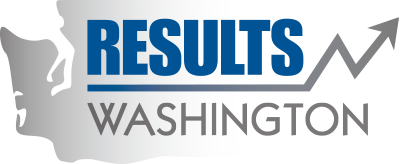Archived: Increase Small Business Gross Business Income (GBI)
The vast majority of Washington businesses—over 95 percent—have fewer than 50 employees. Small businesses often provide local services in rural communities and are owned by our neighbors. Small businesses are personal, they provide income across the income spectrum, and can encourage entrepreneurial talent and investment in our economy, including in areas with chronically high rates of unemployment.
Small businesses are also fragile, with a high failure rate. Small businesses face unique challenges and, often, are impacted differently by state rules and regulations than medium and large businesses. Most businesses start small, and that’s why it’s so important to focus on supporting emerging businesses across all industry sectors.
Small businesses generated over $229 billion in GBI in 2015, over 30 percent of all of the state’s business income. In addition, small businesses with at least one employee account for about 40 percent of total employment, with over 1.1 million jobs.
Gross Business Income:
Data for 2016 should be available in August or September of 2017.
Employment:
The target is to help small businesses create 67,000 jobs by 2015. As of 2013, small businesses are very close to being on target for job growth, adding almost 22,000 jobs from 2012. A more current indication of small business employment growth comes from the Paychex Small Business Job Index. As of October 2014, Washington was estimated to have the second highest annual growth in small business employment of the largest 20 states. Of the 20 largest metro areas, Seattle came in second, surpassed by Dallas.
Paychex/HIS small business job index, October 2014. Analysis of state and metro data is provided to reveal trends in small business employment from the country’s 20 largest states and metro areas based on U.S. population. Percentages are based on a 12-month change. http://www.paychex.com/jobs-index/index.aspx
Actions within individual agencies and through a multi-agency group are underway to positively impact small business growth. Actions fall along three primary avenues: ease, inputs, and sales:
Ease - Mitigating the unintended impact of regulations; making it easy to know and follow the rule
- Small business guide - adding content to the existing guide, improving navigation and access in 2017.
- Regulatory Roadmap: Pilot projects in the restaurant industry, manufacturing industry and construction industry, aimed at the development of a single-stop website that integrates all the regulatory information on starting a restaurant from state, city and county regulatory agencies
- Red Tape Index - Commerce and ORIA, in partnership with the departments of Labor and Industries, Revenue, and Ecology, are leading a pilot project to measure and reduce the administrative cost of doing business.
- Washington Business OneStop – Office of the Chief Information Officer (OCIO) building a business portal to help educate business owners generally, but also to help them understand state regulations.
Inputs-Facilitating small business access to training, advising, financing and employment resources
- Year 5 of the State Trade and Export Promotion(STEP) program, funded by Small Business Administration, and other ongoing export assistance to small business.
- Economic Gardening program (2016-2017) assisting second state companies to increase revenue and employment by providing targeted and strategic technical assistance. (eliminated by legislature 2017)
Sales - Helping foster sales of goods and services produced by small business
- Increasing state procurement from businesses owned by women, minorities, and veterans.
- Looking at opportunities to lessen barriers for small businesses for meeting state procurement and contracting requirements.
- Commerce is beginning a process to include pass-though funds in its effort to increase participation of certified firms, and working with the Minority Business Roundtable to address access to state procurement.
- OCIO created an "innovation exemption"to increase from $10K to $100K the direct buy limit from small businesses.
Small Business Guide: http://ora.wa.gov/site/alias__oria/345/default.aspx
Small Business Liaisons: http://www.ora.wa.gov/portals/_oria/VersionedDocuments/Business_Publications/sbl_flyer.pdf
New Business Roadmap: http://dor.wa.gov/Docs/Pubs/BusReg/Roadmap.pdf
Grow a Business: http://access.wa.gov/topics/business/growbusiness
